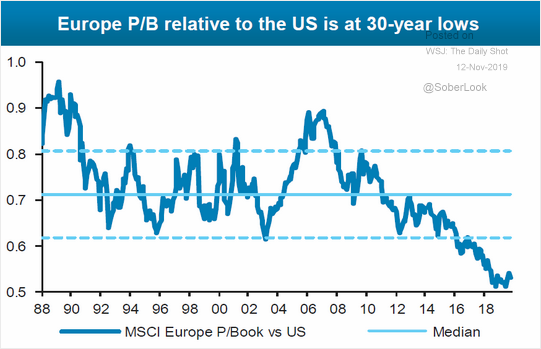The Hollywood Strike: Understanding The Actors' And Writers' Demands

Table of Contents
The Writers' Guild of America (WGA) Demands
The WGA strike is rooted in a desire for significant changes to address the evolving landscape of the entertainment industry. Their demands center around fair compensation in the streaming era, protections against the rise of AI, and improvements to overall working conditions.
Fair Compensation in the Streaming Era
The shift from traditional television models to streaming platforms has drastically altered the compensation landscape for writers. While traditional television offered relatively predictable residual payments based on broadcast reruns and syndication, streaming services largely operate on a different model, often offering limited or no residuals for writers. This has significantly impacted writers' earnings, leading to a demand for a more equitable system. The WGA is seeking:
- Increased minimum wages: A substantial raise to account for the increased cost of living and the reduced residual income from streaming.
- Improved residuals for streaming platforms: A fairer share of streaming revenue, mirroring the residuals received from traditional television broadcasts.
- Minimum staffing levels on productions: Ensuring adequate writer room staffing on all productions, preventing exploitation through understaffing.
Protecting Writers Against AI
The rapid advancement of AI in scriptwriting has raised significant concerns within the WGA. The union fears that AI could be used to replace human writers, diminishing their job security and creative control. Their demands include:
- Regulations on AI usage in scriptwriting: Clear guidelines and restrictions on the use of AI in the creative process, preventing its misuse as a cheap alternative to human writers.
- Ensuring proper compensation when AI is used in production: If AI is utilized in any capacity, writers must receive appropriate compensation for their involvement and contribution.
- Preventing the use of AI-generated scripts as replacements for human writers: Safeguarding against the complete replacement of human creativity with AI-generated content.
Improving Working Conditions
The WGA also aims to address longstanding issues regarding working conditions, which often involve long hours, inadequate breaks, and stressful work environments. Their demands include:
- Mandatory rest periods: Enforcing mandated breaks and rest periods to ensure the well-being of writers.
- Limits on working hours: Implementing reasonable limits on working hours to prevent burnout and exploitation.
- Improved health and safety provisions: Improving the overall health and safety standards for writers in the workplace.
The Screen Actors Guild – American Federation of Television and Radio Artists (SAG-AFTRA) Demands
SAG-AFTRA's demands mirror many of the WGA's concerns, focusing on fair compensation, the impact of AI, and improvements to working conditions specific to actors.
Fair Compensation and Residuals in the Streaming Age
The transition to streaming has also significantly impacted actors' compensation. Traditional models offered residuals for repeated airings and home video sales, but streaming services often pay actors a single upfront fee, regardless of the project's success or ongoing viewership. SAG-AFTRA demands:
- Increased residuals for streaming projects: A more equitable share of streaming revenue, reflecting the continued viewership and use of actors' performances.
- Fairer compensation for self-taped auditions: Addressing the increasing prevalence of self-taped auditions and the lack of compensation associated with this often time-consuming process.
- Protection of actors' likeness in AI applications: Preventing the unauthorized use of actors' likenesses and performances in AI-generated content without their consent and appropriate compensation.
Protecting Actors Against AI
SAG-AFTRA shares the WGA's concerns about the potential displacement of human actors through AI. Their key demands include:
- Negotiating protections against the use of AI to create digital duplicates of actors without their consent and compensation: Preventing the creation of AI-generated "digital twins" without the actor's explicit permission and fair compensation.
- Ensuring actors receive fair payment when their likeness or performance is utilized in AI-generated projects: Establishing a clear system for compensation when an actor's likeness or performance is used in any AI-related project.
Safe Working Conditions and Health & Safety
SAG-AFTRA also emphasizes the need for improved safety standards, particularly on set:
- Increased safety measures on set: Strengthening safety protocols on film and television sets to minimize risks to actors.
- Stronger regulations concerning stunt work: Improving regulations and safety measures for actors performing stunts.
- Greater access to healthcare resources: Ensuring adequate access to healthcare and mental health resources for actors.
Conclusion
The Hollywood strike, driven by the powerful demands of the WGA and SAG-AFTRA, is a pivotal moment for the entertainment industry. The core issues – fair compensation in the streaming era, the ethical use of AI, and improvements to working conditions – highlight the urgent need for a fundamental re-evaluation of industry practices. Understanding these demands is crucial for anyone interested in the ongoing conflict and its profound impact on the future of film and television. Stay informed about the progress of the Hollywood strike and the ongoing negotiations for a fair and equitable future for writers and actors. Keep abreast of updates on the actors strike, the writers strike, and the broader fight for fair compensation and industry reform.

Featured Posts
-
 Analysis Sses 3 Billion Spending Reduction And Its Implications
May 25, 2025
Analysis Sses 3 Billion Spending Reduction And Its Implications
May 25, 2025 -
 M6 Road Closure Van Accident Leads To Hours Of Delays
May 25, 2025
M6 Road Closure Van Accident Leads To Hours Of Delays
May 25, 2025 -
 De Snelle Marktdraai Europese Aandelen En De Vergelijking Met Wall Street
May 25, 2025
De Snelle Marktdraai Europese Aandelen En De Vergelijking Met Wall Street
May 25, 2025 -
 They Came From Afar Found Love In Dc Then Tragedy Struck
May 25, 2025
They Came From Afar Found Love In Dc Then Tragedy Struck
May 25, 2025 -
 Razbor Publikatsii Gryozy Lyubvi Ili Ilicha Iz Gazety Trud
May 25, 2025
Razbor Publikatsii Gryozy Lyubvi Ili Ilicha Iz Gazety Trud
May 25, 2025
